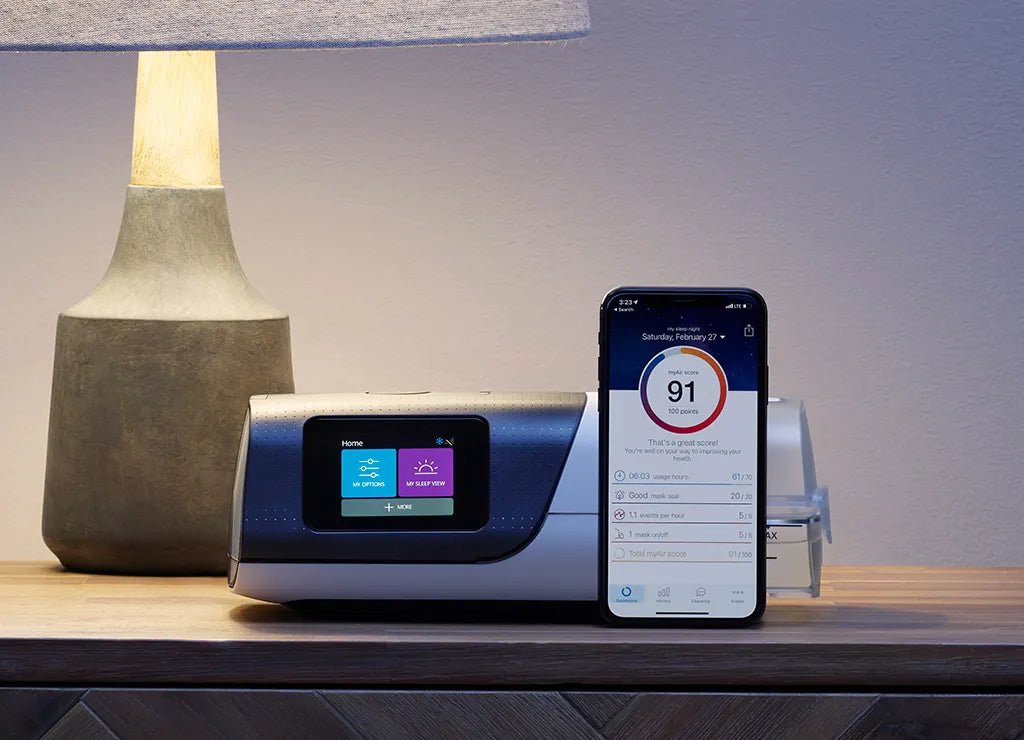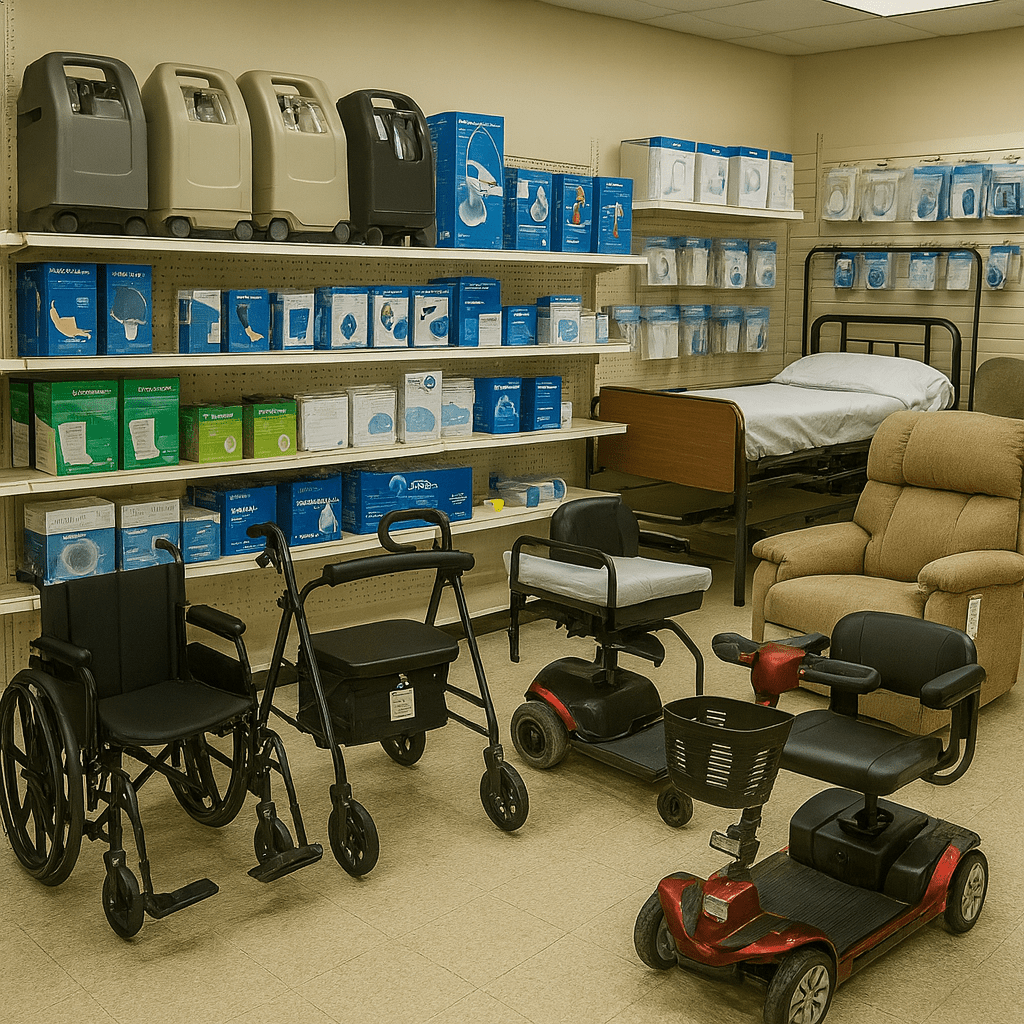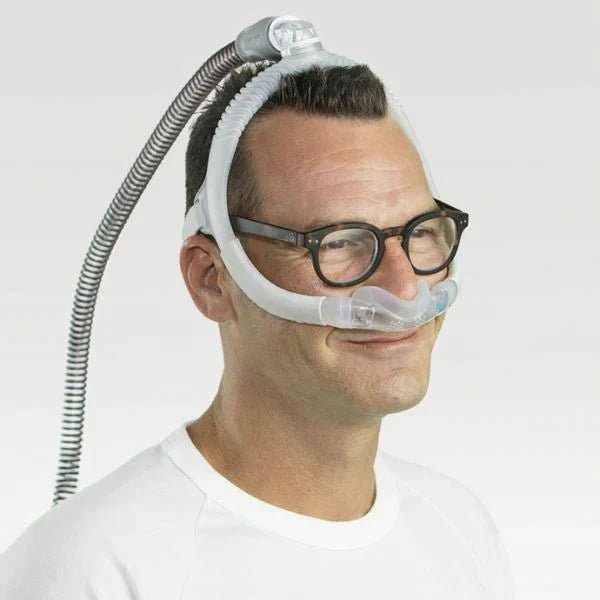The Importance of CPAP Batteries in Sleep Apnea Management
Continuous Positive Airway Pressure (CPAP) machines are crucial for treating sleep apnea. They work by delivering a steady stream of air to keep the airway open, which is essential for people with obstructive sleep apnea (OSA). By using a CPAP machine, individuals can experience improved sleep quality and reduce the health risks associated with this condition. However, there may be situations where access to electricity is limited or unavailable. This is where a CPAP battery becomes an invaluable tool. A CPAP battery acts as a backup power source, ensuring that your therapy continues uninterrupted even during power outages or when you're away from a reliable power supply. Having a CPAP battery is especially important in various scenarios such as:- Traveling: Whether you're on a road trip or flying to a different country, having a portable power solution ensures you can use your CPAP machine wherever you go.
- Camping trips: If you enjoy spending time outdoors and camping, a CPAP battery allows you to maintain your treatment while enjoying nature.
- Emergencies: During unexpected situations like natural disasters or emergencies, access to electricity may be compromised. With a CPAP battery, you can still prioritize your sleep apnea management.
Understanding CPAP Therapy and Its Power Supply Needs
CPAP therapy plays a crucial role in the treatment of sleep apnea, a condition characterized by repeated breathing interruptions during sleep. These interruptions happen because the airway becomes either partially or fully blocked. CPAP machines work by delivering continuous positive airway pressure (CPAP) to keep the airways open throughout the night.How CPAP Machines Work
A CPAP machine consists of three main components:- The Motor: Generates a continuous stream of pressurized air.
- The Hose: Connects the motor to the mask, directing air into the user's airway.
- The Mask: Worn over the nose or mouth, ensuring that pressurized air reaches the airways.
Importance of Consistent Power Supply
For CPAP therapy to be effective, a consistent power supply is indispensable. Interruptions in power can lead to incomplete therapy sessions, affecting overall treatment efficacy. This is where having a CPAP battery becomes invaluable. It ensures that users can maintain their therapy even during power outages or when they are away from traditional power sources.Health Implications of Sleep Apnea
Sleep apnea is more than just disrupted sleep. If left untreated, it can lead to several severe health issues:- Cardiovascular Problems: Increased risk of heart attacks and strokes.
- Diabetes: Higher likelihood of developing type 2 diabetes.
- Daytime Fatigue: Persistent tiredness which can affect daily activities and increase accident risks.
- Mood Disorders: Conditions like depression and anxiety.
When Do You Really Need a CPAP Battery?
1. Travel with CPAP: Why You Should Consider a Battery Backup
Traveling with your CPAP machine can be challenging, especially when it comes to ensuring a consistent power supply. Having a portable battery serves as an alternative power source that guarantees uninterrupted therapy during your journeys.Benefits of Having a Portable Battery During Air Travel
- Airplane Approval: Many airlines allow the use of CPAP machines on board, provided they are equipped with approved batteries. This ensures you can maintain your therapy during long flights without worrying about electricity availability.
- Convenience: A portable battery eliminates the need to hunt for power outlets in airports or rely on in-flight electrical ports, which may not always be functional or compatible with your device.
- Flexibility: Whether you're flying domestically or internationally, having a battery means you can set up your CPAP machine anywhere, including during layovers or unexpected delays.
2. Camping Adventures: Powering Your CPAP Machine in the Great Outdoors
When camping, access to a continuous power supply can be limited or non-existent, making a CPAP battery an essential accessory. During outdoor adventures where traditional electricity availability is scarce, a CPAP battery serves as an ideal alternative power source.Key Benefits:
- Uninterrupted Therapy: Ensures your sleep apnea treatment remains consistent, which is crucial for managing symptoms effectively.
- Flexibility: Allows you to travel with CPAP equipment without worrying about finding a powered campsite.
3. Emergencies and Power Outages: The Role of a Reliable Battery Supply
A reliable CPAP battery can be a lifesaver during emergencies or unexpected power outages. Sleep apnea patients require uninterrupted therapy to manage their symptoms effectively. Dependence on traditional power sources can be risky, especially if you live in an area prone to blackouts. Key scenarios where a CPAP battery proves invaluable:- Natural Disasters: Hurricanes, storms, and other natural events can disrupt electricity availability.
- Medical Emergencies: Hospitals may experience power issues, and having your own backup ensures continuous treatment.
- Travel with CPAP: Ensure you have an alternative power source in destinations with unstable electricity.
Exploring Different Types of CPAP Batteries for Your Needs
1. Lightweight and Travel-Friendly Options: Portable CPAP Batteries
Portable CPAP batteries are designed to provide flexibility and convenience, especially for those who travel frequently. These batteries are lightweight, making them easy to carry in a backpack or suitcase. The compact size doesn’t compromise their capacity to deliver the necessary power for uninterrupted CPAP therapy. Key Features and Benefits:- Portability: Their light weight ensures that you can take your CPAP machine wherever you go without being burdened by heavy equipment.
- Battery Life: Most portable options offer sufficient battery life to power your CPAP machine through an entire night’s sleep, often ranging from 8 to 13 hours on a single charge.
- Quick Charging: Many portable batteries feature quick charging capabilities, allowing you to recharge them in just a few hours.
- Airplane Approval: Some models are approved for air travel, which is crucial if you need to use your CPAP machine on long flights. Always check with the airline for specific guidelines.
- Versatility: They often come with multiple adapters to ensure compatibility with different CPAP models.
2. Continuous Power Supply on the Go: Deep-Cycle Lead-Acid Batteries
Deep-cycle lead-acid batteries offer a reliable and continuous power supply for CPAP machines, making them an excellent choice for extended use in various conditions. These batteries are designed to provide a stable power output over long periods, ensuring that your CPAP therapy remains uninterrupted.Key Characteristics:
- Durability: Built to withstand deep discharge cycles, ideal for prolonged use.
- Capacity: Typically have higher capacity compared to lightweight batteries, supporting extended therapy sessions.
- Compatibility: Often require special adapters to connect with CPAP devices.
Advantages:
- Reliability: Known for their consistent performance in providing power during extended outings.
- Cost-Efficient: Generally more affordable than high-end portable batteries.
Considerations:
- Weight: Heavier than portable batteries, which can be a drawback for travel.
- Maintenance: May require regular maintenance to ensure optimal performance.
3. Car Batteries as an Alternative Power Source: Pros and Cons
Using car batteries with converters for powering your CPAP machine can be a viable option, especially in emergencies. Car batteries are typically more accessible and can provide a temporary power solution when other options are not available. Here's what you need to know:Pros:
- Availability: Easily accessible in most vehicles.
- Power Output: Can provide significant power through the use of a proper converter.
Cons:
- Voltage Spikes: Risk of voltage spikes if connected while the engine is running, potentially damaging your CPAP machine.
- Battery Drain: Can quickly drain your car battery, leaving you stranded without vehicle power.
Choosing the Right Battery for Your Sleep Apnea Treatment: Key Factors to Consider
Selecting the right battery for your CPAP machine involves evaluating several critical specifications. These considerations ensure that your therapy remains consistent and effective, even when traditional power sources are unavailable.Important Specifications:
- Battery Capacity: The capacity of a battery, often measured in milliampere-hours (mAh) or ampere-hours (Ah), determines how long it can power your CPAP machine. Higher capacity batteries can provide longer usage times, which is crucial for extended trips or prolonged power outages.
- Charging Time: How quickly a battery can be recharged is another vital factor. Some batteries offer rapid charging capabilities, ensuring minimal downtime between uses.
- Portability: For those who travel frequently, lightweight and compact batteries are ideal. Portable CPAP batteries are specifically designed to be travel-friendly without sacrificing performance.
Ensuring Compatibility:
- CPAP Machine Compatibility: Not all batteries are compatible with every CPAP model. Ensure that the battery you choose is designed to work seamlessly with your specific machine. Check manufacturer guidelines or consult with your equipment provider to confirm compatibility.
- Voltage and Connector Types: Different CPAP machines may require specific voltage levels or connector types. Using an incompatible battery can lead to suboptimal performance or even damage your device.
Cost Analysis: How Much Should You Expect to Spend on a Reliable CPAP Battery?
The cost of CPAP batteries can vary widely, typically ranging from $200 to $700. Several factors influence this price range:- Battery Capacity: Higher capacity batteries that can last longer naturally cost more. For instance, a battery like the ResMed RPS II, which offers up to 13 hours of power, will be on the higher end of the spectrum.
- Additional Features: Some batteries come with special features such as built-in humidifiers or solar charging options. These additional functionalities can significantly increase the overall cost.
The Health Benefits That Come with Investing in a Quality CPAP Battery
Consistent therapy delivery is crucial for effective management of obstructive sleep apnea (OSA). A quality CPAP battery ensures that you maintain uninterrupted treatment, which directly impacts your health and well-being. Here are some key health benefits:- Enhanced Sleep Quality: Continuous positive airway pressure helps keep your airways open throughout the night, allowing for deep and restorative sleep.
- Improved Energy Levels: Regular use of your CPAP machine prevents the daytime fatigue commonly associated with OSA, enabling you to stay active and alert.
- Mood Stability: Consistent therapy can reduce the mood swings and irritability often linked to poor sleep quality.
- Reduced Health Risks: Effective management of OSA lowers the risk of severe conditions such as hypertension, heart disease, and stroke.









